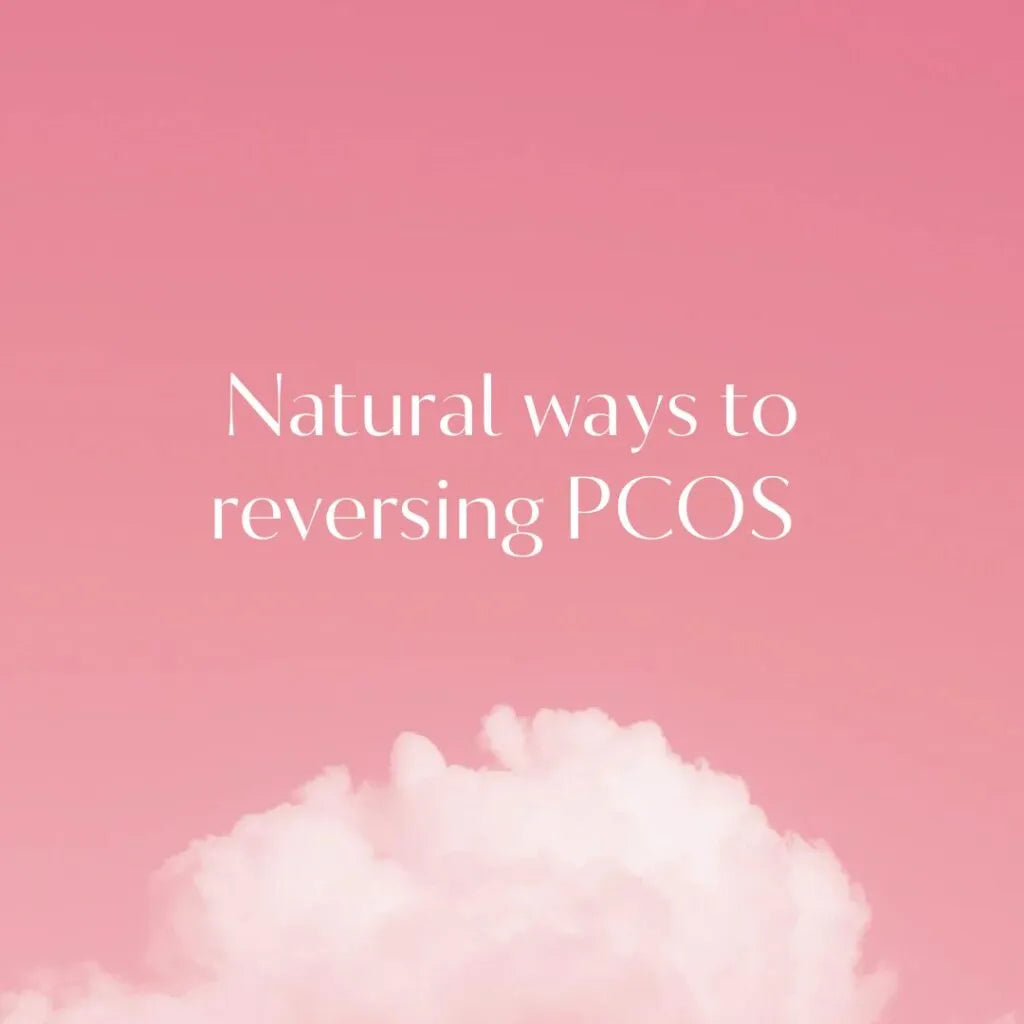Polycystic Ovary Syndrome, commonly known as PCOS, is a prevalent health condition that affects women in their reproductive years and is one the main causes of infertility. It is also associated with long-term health risks such as type 2 diabetes and cardiovascular issues.
The exact cause of PCOS is not fully understood, but it is believed to involve a combination of hormonal imbalance, insulin resistance and environmental factors. PCOS has increased by nearly 65% over the past decade, with up to 70% of cases remaining undiagnosed.
Signs and Symptoms of PCOS
- Missed or irregular periods
- Fertility issues
- Weight gain
- Thinning hair on the head
- Excessive hair on the face, chest, back or bottom
- Acne or oily skin
The good news is there are natural ways to reverse PCOS through diet, herbs and supportive supplementation.
Natural Ways to Reverse PCOS Symptoms
- Keep blood sugar balanced throughout the day. Start by eating breakfast within 30 minutes of waking. Each meal should contain carbohydrate, protein and fat. Aim for 25g of protein with each meal. Protein is essential for digestion and metabolism and crucial in the production of hormones.
- Ask your health practitioner to run a hormone panel including prolactin, thyroid and insulin.
- Adopt a metabolically supportive diet by avoiding seed oils. Consume good quality fats including butter and coconut oil. Include dairy, eggs, organ meats and fruits and vegetables in the diet.
- Incorporate a daily raw grated carrot in to your diet. Raw carrot fibre binds to excess oestrogen and prevents its re-absorption, allowing it to pass through and out of the body.
- Exercise wisely. Swap long high-intensity workouts for strength training, Pilates, walking, Tai chi and yoga. Excessive exercise messes up hormones.
- Ditch hormone disrupting chemicals – toxic skincare, plug-in air fresheners, fragranced sanitary products, consumables wrapped in plastic and buy organically where possible.
- High prolactin? Adequate sea salt can help reduce prolactin as can B6 and Vitamin E.
- Natural light is essential for hormone regulation. It is common in people with PCOS to have low vitamin D levels. It is important, ideally within half an hour of waking, to go outside and be exposed to the morning light. Avoid energy saving bulbs and blue light in the evening.
- Find ways to relax and alleviate stress.
Supportive Herbs and Supplements for PCOS
-
Chaste tree – enhances fertility, balances progesterone and oestrogen and can help reduce raised prolactin. STUDY.
- Myo-inositol – has proven to be a treatment for PCOS, fertility and insulin resistance. STUDY.
- Vitamin D – Vitamin D deficiency can be an effective factor in development of PCOS and vitamin D supplementation can play a role in prevention of this condition. STUDY.
- Co-enzyme Q10 – improves ovulation by neutralising the free radicals that damage egg quality. STUDY.
- Collagen – regular collagen supplementation may assist in balancing androgen levels, helps blood sugar regulation, can help acne and unwanted hair growth and improve metabolic function. STUDY.
- Calcium – calcium and vitamin D supplementation improves menstrual disturbances and metabolic factors in PCOS. STUDY.
- Vitamin E – Vitamin E is important in the entire reproductive process in women helping fight stress, balancing hormones and improving insulin sensitivity and inflammation. After 12 weeks of using Vitamin E, patients experience a reduction in acne, hirsutism, and improved hormone levels. STUDY.
- Milk thistle – to support liver health. One of the main roles of the liver is to help regulate the balance of sex and thyroid hormones. Optimal liver health is essential for correct removal of excess oestrogen so it is not reabsorbed by the body where it can lead to a hormonal imbalance.
- Holy basil – an adaptogen for stress and resilence, research shows that Holy basil regulates blood sugar and insulin.
It is helpful to have the guidance and support from a qualifed health practitioner.

Share:
Anti-Inflammatory Blood Orange and Seville Marmalade
Gout Commonalities and Remedies